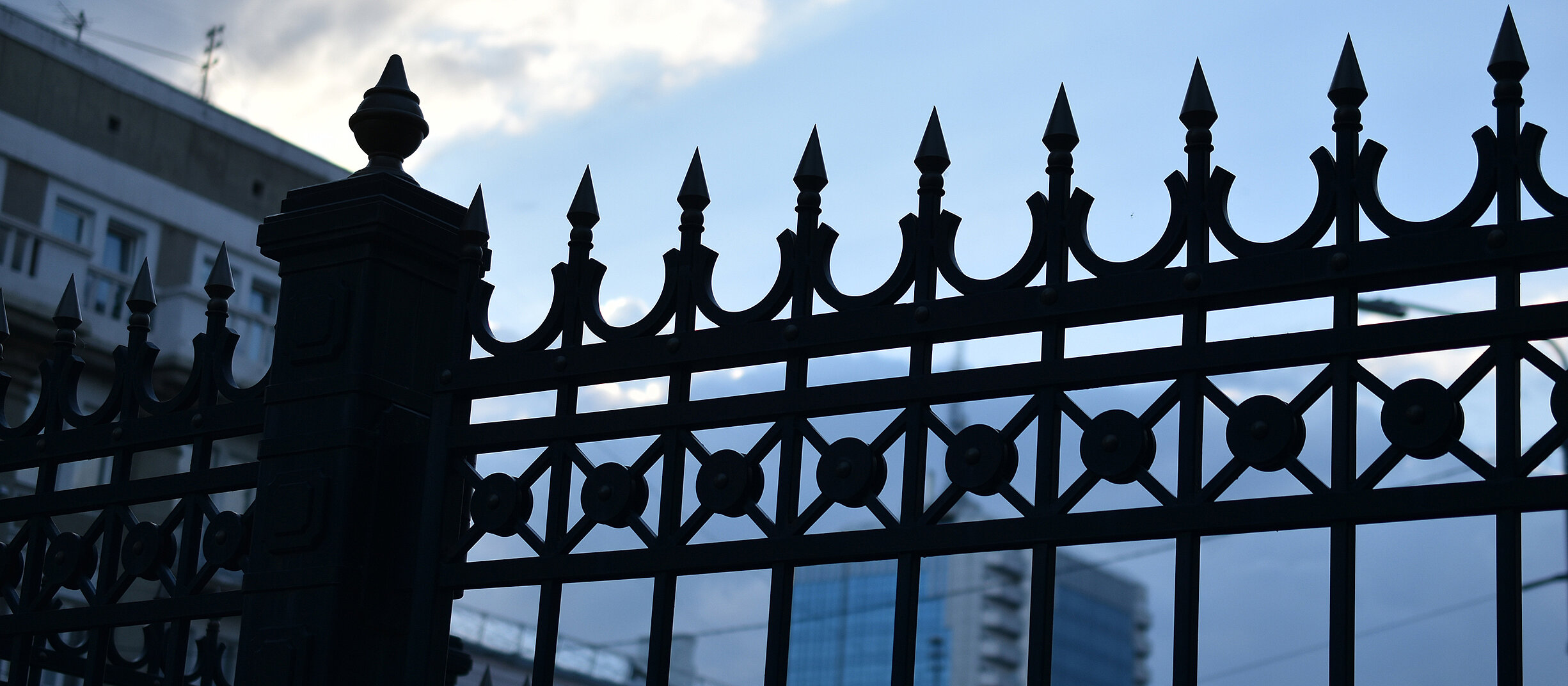The Tenth EU Sanctions Package on Russia
On 26 February 2023, new sanctions against Russia came into force as the EU unleashed its 10th sanctions package on the occasion of the anniversary of Russia’s attack on Ukraine on 24 February 2023.
The sanctions package of 25 February 2023 is based on CFSP decisions and comprises three Regulations:
- Council Regulation (EU) 2023/427 amending Regulation (EU) No 833/2014, which introduces new financial and trade sanctions;
- Council Regulation (EU) 2023/426 amending Regulation (EU) No 269/2014 to specify the obligations to provide information on funds and economic resources of listed natural or legal persons, entities and bodies;
- Council Implementing Regulation (EU) 2023/429, which amends the Annex of Regulation (EU) No 269/2014 to add further persons and entities to the list of persons, entities and bodies subject to restrictive measures.
The new prohibitions and restrictions introduced by the tenth sanctions package apply to an estimated EUR 11.4bn worth of EU exports.
Personal restrictions
The tenth sanctions package adds a total of 87 persons and 34 entities to the Annex of Regulation (EU) No 269/2014 (the list of persons, entities and bodies subject to restrictive measures). Accounts of those persons or entities must be frozen and no economic resources must be made available to them. The newly listed persons and entities include three major banks – Tinkoff Bank, Alfa-Bank and Rosbank; furthermore, the National Wealth Fund of the Russian Federation; the Russian National Reinsurance Company; companies which manufacture and supply missiles, drones, aircraft, military vehicles, naval vessels or control systems and supply them to the Russian military; members of the Federation Council and of the State Duma; deputy ministers; senior officials; the All-Russia People’s Front and persons associated with it; military personnel and mercenaries; propagandists and individuals responsible for the deportation and forced adoption of Ukrainian children. Four Iranian individuals involved in the elaboration and supply of drones Russia uses in its attacks on Ukraine were also added to the list. This brings the total number of sanctions under Regulation (EU) No 269/2014 to 1473 persons and 205 entities and bodies.
Annex IV of Regulation (EU) No 833/2014, which lists the persons, entities and bodies closely linked to Russia’s military and industrial complex, has also been expanded. The new additions to this list include not only 96 organisations of this kind but also seven Iranian organisations which supplied military-grade drones using EU components to Russia for its attacks on civil infrastructure in Ukraine. Annex IV now lists a total of 506 military end users, including Russian organisations with ties to the Kremlin-controlled Wagner mercenary group.
Restrictions under Regulation (EU) No 833/2014 in specific sectors
At the centre of the tenth sanctions package is the restriction of exports of sensitive dual-use goods and advanced technology items, including indirect exports via third parties, that could be used to strengthen Russia’s industrial capacity.
Additional import restrictions on specific goods
The import restrictions on goods that generate significant revenue for Russia are expanded to include bitumen, asphalt, carbon and synthetic rubber (Annex XXI Part C Regulation (EU) No 833/2014). The import restrictions thus apply now to 140 categories of goods. Article 3i of Regulation (EU) No 833/2014, which in conjunction with Annex XXI covers import restrictions on goods originating or exported from Russia, is complemented by a provision governing the treatment of existing contracts for the execution until 27 February 2023 of contracts concluded before 26 February 2023 in relation to certain goods in Annex XXI Part C (e.g. petroleum coke). The new paragraph 3d includes a special import quota until 30 June 2024 for certain quantities of goods of CN Codes 2803 (carbon) and 4002 (rubber).
For the first time, a statutory definition is provided of what qualifies as import. According to the amended version of Article 12e of Regulation (EU) No 833/2014, goods physically in the Union may be released by the customs authorities, provided that they have been presented to customs in accordance with Article 134 of the Union Customs Code before the entry into force or applicability date of the respective import restrictions, whichever is latest. The possibility of the goods being released applies regardless of the procedures under which the goods were placed after presentation to customs (release for fee circulation, transit, inward processing, etc.) or of the procedural steps and formalities pursuant to the Union Customs Code necessary for the release. What follows from this at the same time is that goods originating or exported from Russia that have an import restriction attaching can be re-sold throughout the EU if they were released by the customs authorities before the entry into force or applicability date of the respective import restrictions – whichever is later –, in particular if they were already in free circulation under customs law at the time concerned. This means that a statutory provision is created for the first time for what was formally only answered in the FAQs of the Federal Ministry for Economic Affairs and Climate Action [Bundesministerium für Wirtschaft und Klimaschutz – BMWK] (FAQ No. 48) and the European Commission (in relation to Article 3m of Regulation (EU) No 833/2014).
Additional restrictions on the sale, supply, transfer and export of specific goods
The list in Annex XXIII of goods and technologies that are prohibited under Article 3k of Regulation (EU) No 833/2014 from being sold, supplied, transferred or exported to persons, entities and bodies in Russia or for use in Russia has been expanded. It now also includes the following goods:
- Heavy trucks (and their spare parts);
- Goods considered to be easily redirectable to the Russian military, such as electricity generating sets, binoculars, radar units, compasses, etc.;
- Construction goods such as bridge sections, parts for tower structures, forklifts, cranes, etc.;
- Goods that are critical to the functioning and enhancement of Russian industrial capacity (electronic components, machine parts, pumps, appliances for metalworking etc.);
- Complete industrial plants (this category has been added to prevent gaps in application).
The amended version of Article 3k(3c) of Regulation (EU) No 833/2014 also provides for a provision governing the treatment of existing contracts for the execution until 27 March 2023 of contracts concluded before 26 February 2023 in relation to the goods listed in Part C of Annex XXIII, including iron and steel products.
Restrictions in the technology sector
Additional restrictions apply to the sale, supply, transfer and export of technology items (Article 2a of Regulation (EU) No 833/2014) that can be easily redirected to support the military. Annex VII of Regulation (EU) No 833/2014 was expanded accordingly. This amendment concerns further electronic components that can be used in Russian weapon systems (drones, missiles, helicopters, vehicles), such as certain rare earths, electronic integrated circuits and thermographic cameras.
Effects of duties to inform
Under Article 5a of Regulation (EU) No 833/2014, the duties of EU banks and EU businesses as well as of EU citizens to provide information were expanded with effect from 27 April 2023. The aim is to set up a list across all Member States of all frozen assets of the Russian Central Bank held in the EU to allow Russian public assets to be used later on for reconstruction in Ukraine and to prevent circumvention.
Exceptions from the ban on transactions
Apart from that, another exception is provided for in relation to the ban on transactions with the Russian state-owned companies listed in Annex XIX under Article 5aa of Regulation (EU) No 833/2014, namely in relation to transactions that are strictly necessary for the divestment or withdrawal of EU-domiciled persons, entities and bodies from listed Russian state-owned companies or their EU branches.
Transit embargos
In order to minimise the risk of circumvention of the restrictive measures, Article 2 of Regulation (EU) No 833/2014 (paras. 1a, 3a, 4a) prohibits the transit via the territory of Russia of dual-use goods and technology and arms exported from the Union. Paragraph 1a, which is newly added to Article 2aa of Regulation (EU) No 833/2014, provides for an identical transit prohibition for firearms, their parts and essential components and ammunition, as referred to paragraph 1, that are exported from the EU.
Expansion of the air traffic embargo
The restrictions under Article 3c of Regulation (EU) No 833/2014 on the sale, supply, transfer or export of goods and technology items suited for use in aviation or the space industry to Russia or for use in Russia are expanded by the addition of a new paragraph 5c which provides for a provision governing the treatment of existing contracts for the execution until 27 March 2023 of contracts concluded before 26 February 2023 in relation to CN 8411 turbojet and turbo propeller engines listed in Annex XI Part D.
Paragraphs 5 and 6, which are newly inserted into Article 6 of Regulation (EU) No 833/2014, require aircraft operators of non-scheduled (i.e. private) flights between the EU and Russia, operated directly or via a third country, to notify all relevant information concerning the flight to their competent authorities at least 48 hours in advance. This is to prevent the circumvention of the ban on Russian aircraft from EU airspace.
Restrictions on services
A new paragraph 2a is added to Article 12b of Regulation (EU) No 833/2014, which was already introduced as part of the ninth sanctions package. This new paragraph stipulates that, in deviation from Article 5n of Regulation (EU) No 833/2014, the competent authorities may allow the provision of the services mentioned therein (e.g. in the fields of auditing, IT consultancy and legal advice) to continue until 31 December 2023 where such services are strictly necessary for the divestment from Russia or the wind-up of business activities in Russia.
Prohibition on membership of corporate bodies
With effect from 27 March 2023, Article 5o of Regulation (EU) No 833/2014, which is newly introduced, prohibits critical infrastructure entities within the EU from allowing Russian nationals and persons residing in Russia to hold a position on their corporate bodies. The term “critical infrastructure” was first defined in Article 1 lit. y to za of Regulation (EU) No 833/2014. In this context, reference is made to the definition of Directive (EU) 2022/2557 on the resilience of critical entities and Directive (EU) 2008/114 on the identification and designation of European critical infrastructure and the assessment of the need to improve their protection.
Further changes to Regulation (EU) No 833/2014
Article 5p of Regulation (EU) No 833/2014, which is newly introduced, stipulates that it shall be prohibited from 27 March 2023 to provide gas storage capacity (except for LNG) in a storage facility in the EU to Russian nationals and persons residing in Russia. The EU sanctions expressly do not include an export ban on gas, i.e. it remains in principle possible to export gas.
The broadcasting ban under Article 2f. is extended to include the Russian state-owned media “RT Arabic” and “Sputnik Arabic” (Annex XV of Regulation (EU) No 833/2014).
Summary and outlook
Market participants have to prepare for the expanded restrictions in particular in relation to technology items, and for the addition of further persons on the lists of restrictions. Unlike the EU, which reached agreement on the tenth sanctions package only on the day after the anniversary of Russia’s attack on Ukraine, the United States imposed further sanctions already on 24 February 2023. In addition to listing further persons on the Specially Designated Nationals and Blocked Persons (SDN) List and imposing sanctions on the Russian metal and mining sector, those sanctions also include the addition of European companies to the Entity List because of their circumvention activities, with the Bureau of Industry and Security (BIS) at the same time being granted additional authority to enforce the restrictions associated with the listing. Moreover, the BMWK presented a position paper already on 22 February 2023 in which it proposed actions to be taken to restrict circumvention activities that may find their way into an eleventh sanctions package in the future.

Subscribe to our GvW Newsletter here - and we will keep you informed about the latest legal developments!




